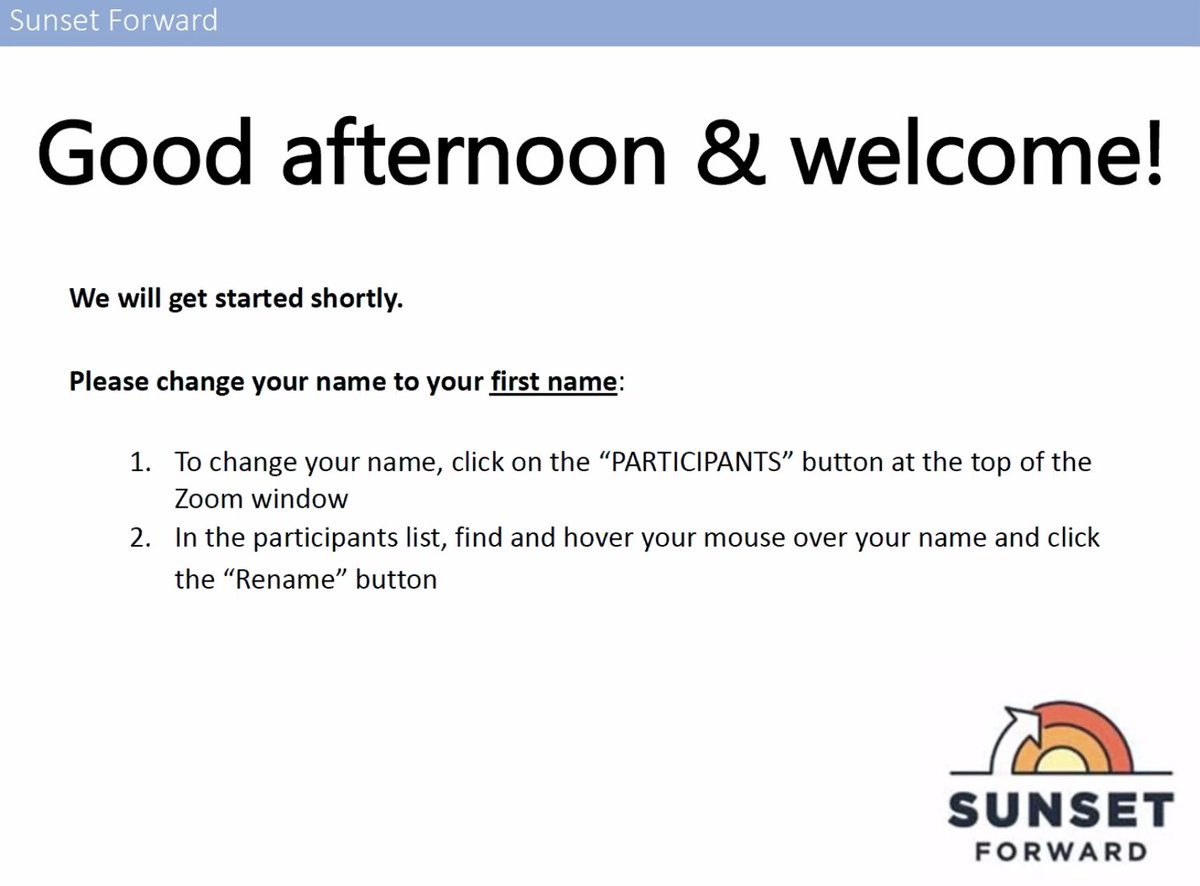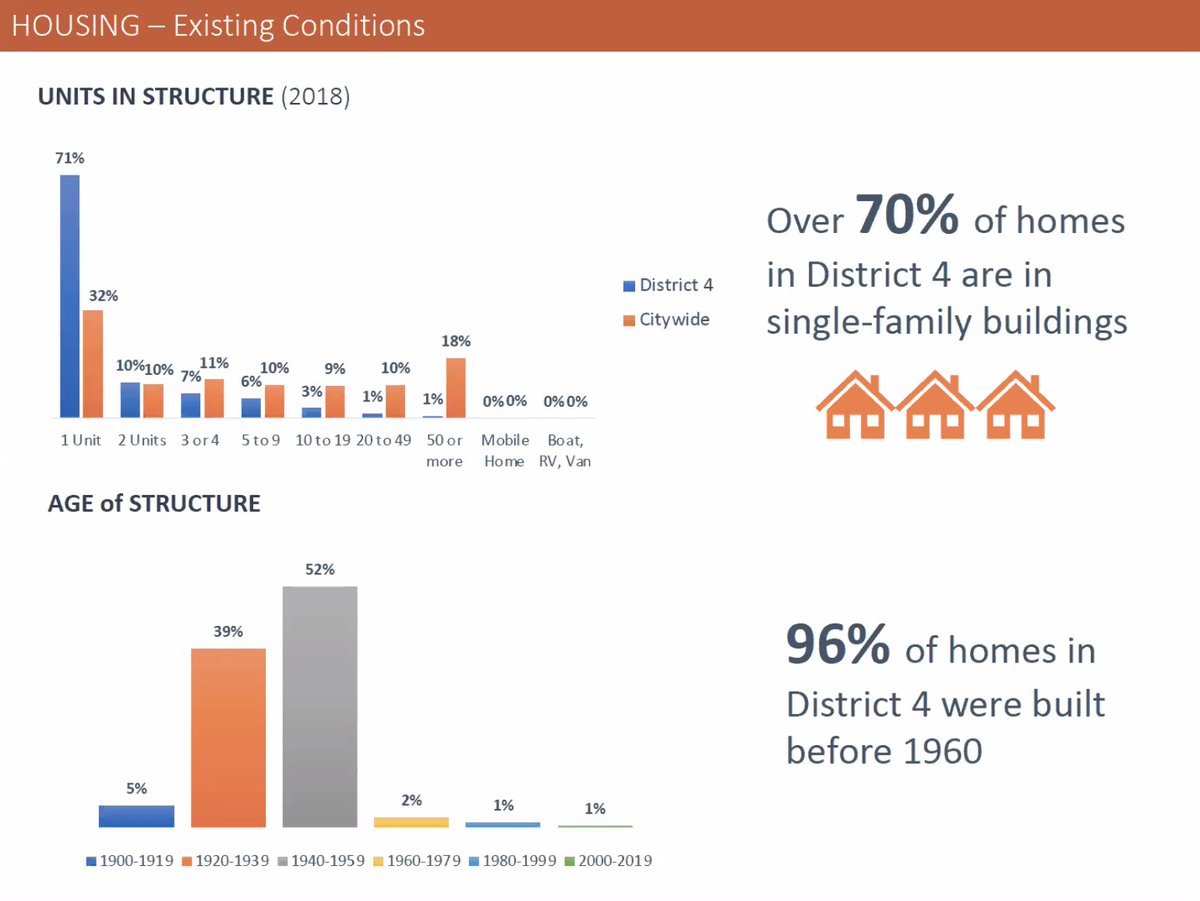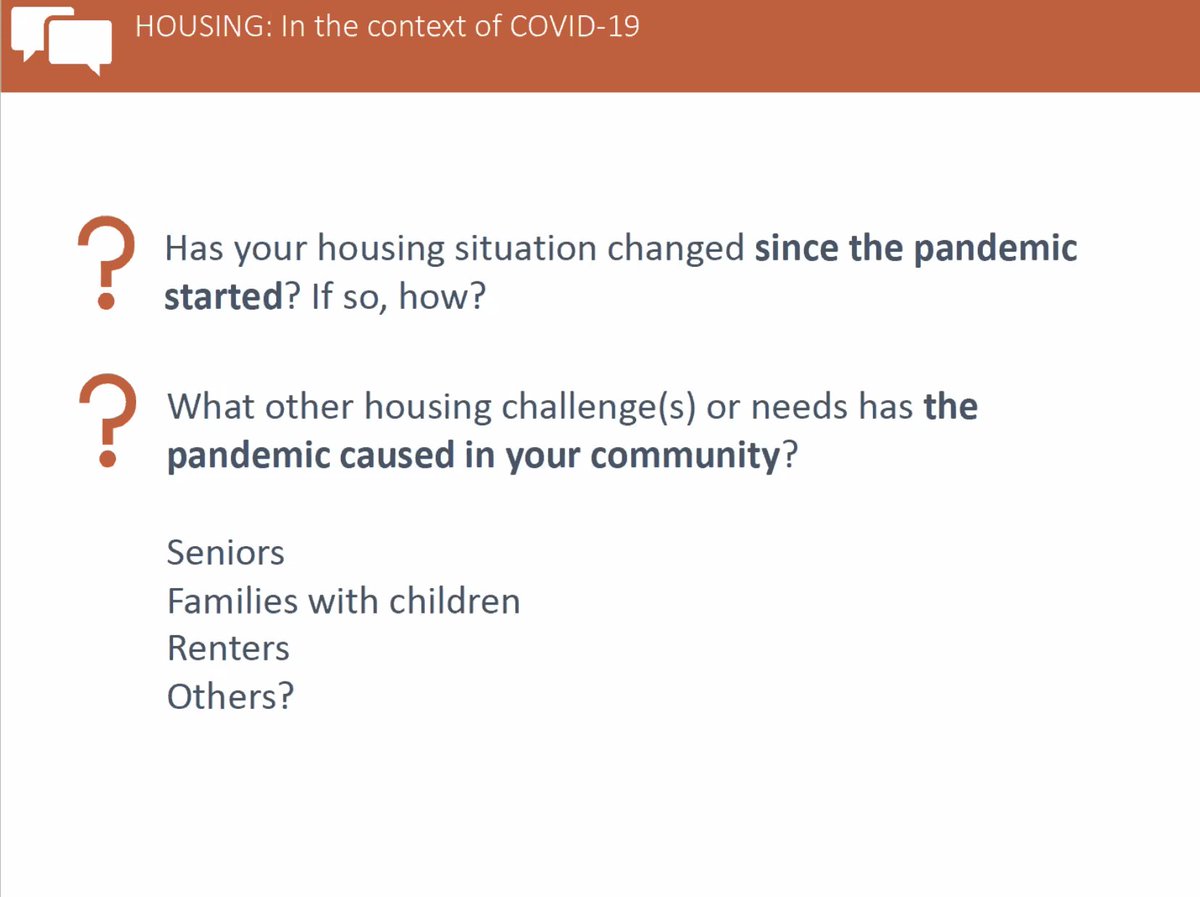SB 1120 might be down, but life still goes on. I'm attending a focus group on housing issues in the Sunset District. 

Joseph Smooke is also here to observe. He's working with SF Planning, D1, D4, and D7 offices, and MEDA to expand affordable housing development capacity in the west side.
These slides are probably identical to a previous Sunset focus group I attended. Planning staff notes that Asian population in District 4 has grown significantly as a proportion of residents. 



One consideration for Planning: are people able to communicate with them in English? Those who don't are more likely to speak an API language. 



Planning: the Sunset is a "middle-income district" compared to the rest of the Bay Area, but there are are pockets of poverty too. 

Planning is asking about what else makes the Sunset population unique:
• Great place to raise a family
• Small-town feeling in a big city
...and what's changing:
• Homelessness and safety are increasingly important
• Great place to raise a family
• Small-town feeling in a big city
...and what's changing:
• Homelessness and safety are increasingly important
Planning: "more of our new housing has been focused on the east side," which means that all the "resources" [read: affordable housing money] have gone there as well.
Hmm, someone should tell CCHO that's why all the affordable housing in the last decade has been built there.
Hmm, someone should tell CCHO that's why all the affordable housing in the last decade has been built there.
Housing issues vary by district.
In D1: Geary Blvd, Small Sites acquisitions
In D4: ADUs "which fit in neighborhoods' context"
In D7: housing for families and seniors
In D1: Geary Blvd, Small Sites acquisitions
In D4: ADUs "which fit in neighborhoods' context"
In D7: housing for families and seniors

Planning: "Seventy-one percent of housing units in the district are single-family." And 96% of homes were built before 1960. Jesus. 



The proportion of homes with children is down, but there are more senior households.
Translation: families are leaving SF, and adults are aging in place.
Translation: families are leaving SF, and adults are aging in place.

Planning: homes are increasingly out of reach, except to high-income earners. Average home prices have gone up by nearly $1 million in the last 23 years. Rents have gone up but are slightly more affordable than SF. 

Planning: There's a perception that all of SF is homeowners. D4 is 61% owner-occupied, which is flipped from SF as a whole. Rental housing is more concentrated in "certain parts of the District" [read: commercial corridors] 

Planning is explaining the concept of rent burden. In 2018, 41% of Sunset renters were rent-burdened, higher than the SF average. 

D4 also has a higher proportion of overcrowding than SF: 7% for the Sunset, 3% for SF.
Overcrowding is tracked by the Sunset, defined as more than 1.01 people per room.
Overcrowding is tracked by the Sunset, defined as more than 1.01 people per room.

I also mistyped the "perception of D4 as homeowners" slide:
https://twitter.com/_fruchtose/status/1300881286546952197
Someone asks if homeowners can be burdened. Planning says yes, but it's a different kind of burden, being house-rich and cash-poor.
Evictions also affect renters, but a small proportion of SF's. D4 evictions are most likely to be Ellis Act and Owner Move-Ins.
Planning: People mainly rent SFHs not subject to rent control laws, and ADUs.
Planning: People mainly rent SFHs not subject to rent control laws, and ADUs.

Housing needs in context of COVID-19:
• Rent and mortgage payments are still owed, even if there's an eviction moratorium
• People can't isolate in own room due to overcrowding
• Unaffordable housing forces reduces mobility and causes long commutes. COVID-19 makes this worse.
• Rent and mortgage payments are still owed, even if there's an eviction moratorium
• People can't isolate in own room due to overcrowding
• Unaffordable housing forces reduces mobility and causes long commutes. COVID-19 makes this worse.

Planning is asking how people's housing situations have changed since the pandemic started, and what other challenges COVID-19 has caused. 

One attendee: it's great to have a roof over my head. Business has dropped drastically since COVID-19.
Another attendee: It raises the question of whether we're an inner-ring suburb or part of the bigger city. Are we a bedroom community? Who gets to live here?
Another attendee: It raises the question of whether we're an inner-ring suburb or part of the bigger city. Are we a bedroom community? Who gets to live here?
Someone else: There's a lot of people crowding into single-family rentals.
Someone asks if zoning changes are part of the process.
Planning: It's on the table. If we need to change the zoning to meet District 4 needs, it's a potential outcome.
Someone asks if zoning changes are part of the process.
Planning: It's on the table. If we need to change the zoning to meet District 4 needs, it's a potential outcome.
One neighbor says that he has a home on a very large lot. He could build an ADU in his backyard, but he would need a variance. It would cost a lot of money.
Planning: ADUs are now permitted almost everywhere in CA. And Gordon Mar's working on an affordable ADU program.
Planning: ADUs are now permitted almost everywhere in CA. And Gordon Mar's working on an affordable ADU program.
Attendee: childcare costs are very high and that's why people are leaving. My family moved to the Sunset for more space, but the SFHs aren't accessible to everyone. People need something in between an ADU and an SFH.
Another attendee talking about having a two-unit home, wanting her children can live in the building and take care of her and husband as they grow older. Small Sites program sounds good, but they're not sure if those sites stay affordable. [Not always.] More 100% BMR is needed.
Attendee: We need more 2- and 3-bedroom homes. There's underbuilding of larger units.
Planning: We're working with seniors in D7 who want to downsize but who can't find housing in the district like that because it doesn't exist or because it's too expensive. So we're focusing on senior needs there.
Attendee: my children could not afford a home here. That's why we'd like to have an ADU, but the cost is prohibitive.
Attendee: there are not a lot of nursing facilities which meet the needs of API communities. People don't know where they can go to feel safe and provided for.
Attendee: Many houses with ADUs have a lot of cars parked out front. Pavement ruins the character of the neighborhood. We need more transit.
I asked for clarification on Small Sites, where non-profits aren't rent-controlled. Planning says the rent can go up for some tenants, but the building has to "average out" as 80% affordable. [I think this is what they meant? It was unclear to me.]
Another attendee says that the Small Sites program doesn't sound as good after hearing that.
Attendee: since the Black Lives Matter movement, I've been thinking about how the west side was downzoned so it would stay single-family. Neighborhood character was frozen when zoning was put in place for SFHs. We need to look at our needs now.
Planning is developing a survey for the Sunset. They would like to get feedback from friends and family when it's ready.
That ends the focus group. Thanks for reading!
That ends the focus group. Thanks for reading!

• • •
Missing some Tweet in this thread? You can try to
force a refresh

























